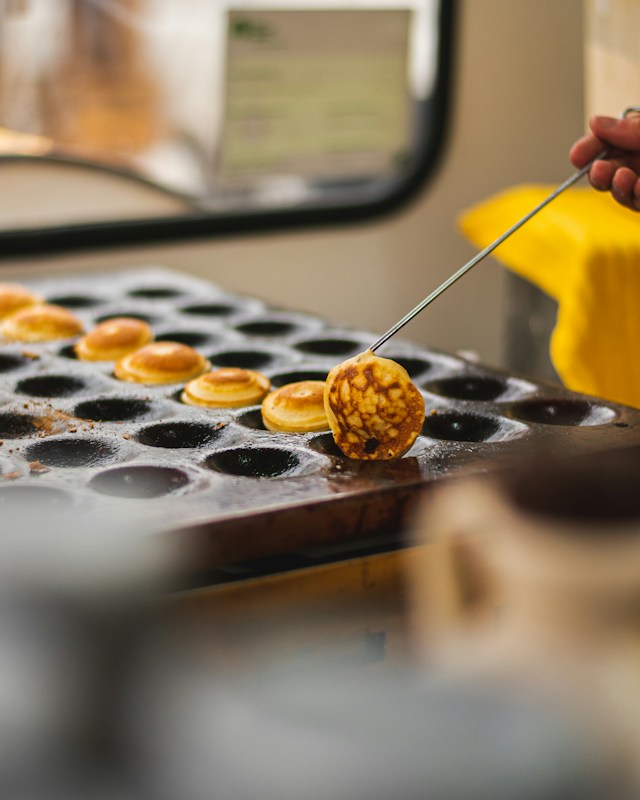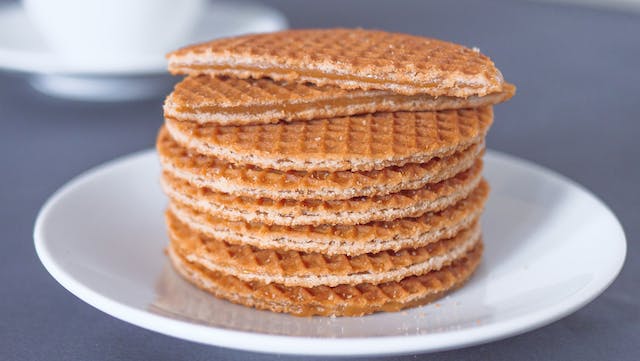Thinking about starting your own food business in The Netherlands? Before diving into your marketing plan, let’s take a look at understanding the Dutch food culture.
What is the eating culture in The Netherlands?
The Dutch palate is often considered subtle by expats, with common spices like salt, pepper, nutmeg, and cloves found in many Dutch kitchens. A typical Dutch weeknight meal, known as an AVG’tje (short for potato, meat, and veggies), might include classics like meatballs, potatoes, and green beans.
Another traditional Dutch meal is “stamppot.” Essentially, stamppot involves mashed potatoes and veggies, topped with smoked sausage and gravy. While there are numerous variations, “Boerenkool stamppot” (mash with kale) stands out as the most popular.
Cultural influences in the Dutch food culture
Despite the minimal spice palette, the Dutch East India Company, known for its extensive spice trade, introduced a variety of exotic spices to the Dutch kitchen. Due to this history, the Netherlands has a rich mix of cultures, and as a result, dishes from Indonesian, Surinamese, and Chinese cuisines have become popular choices for takeout on lazy Friday nights.
Dining culture and food etiquettes in The Netherlands
In the Netherlands, dinner typically happens early, usually between 5 – 7 pm. If you’re not invited to dinner, it’s a good idea to leave before this time. Dutch people value punctuality, so always arrive on time, and it’s not usual to overstay your welcome. A post-meal “bakkie” (coffee) serves as a subtle signal that the evening is coming to a close.
Restaurants and Dutch Street Food

Food Festivals and Events in the Netherlands
Despite the predominantly grey and rainy weather, the Dutch truly know how to enjoy the summer. Outdoor festivals, including food festivals, offer something for everyone, with food trucks in parks welcoming the whole family. Some recurring food and wine festivals include:
Dutch Culinary Traditions
Ready to indulge? Here are some traditional Dutch delights:
- Stroopwafels: Caramel-filled waffle cookies, perfect with tea or coffee.
- Bitterballen: Deep-fried meat snacks, a party favourite.
- Haring: Raw herring with onions and pickles, an acquired taste.
- Poffertjes: Miniature fluffy pancakes with powdered sugar.
- Oliebollen: Deep-fried donuts, a winter delight.
- Stamppot: Mashed potatoes and veggies, a year-round comfort.

Understanding the Dutch food culture might be one of the key ingredients for a successful food business in the Netherlands. So familiarise yourself with the food culture and see how you can implement it in your marketing strategy.
Read here for more on how to start a food business in Holland.

